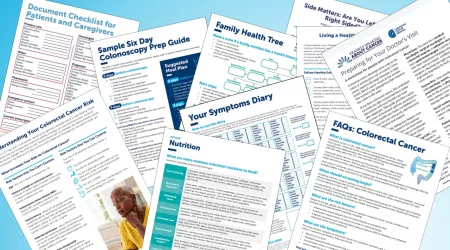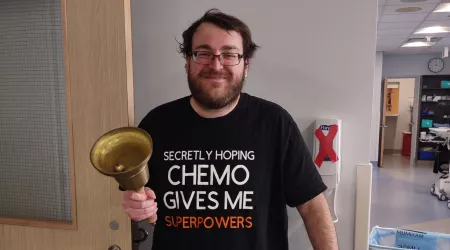
Six tips for getting your doctor to understand you

What do you do when you're trying to get through to your doctor, but you think he or she isn’t hearing you? What if you're trying to advocate for yourself, but you feel like your doctor doesn’t understand your concerns? Dr. Leana Wen, M.D., will be presenting on the importance of integrative care and patient advocacy at our National Conference in Miami this October. Check out this teaser for what’s sure to be a stellar session and let’s get pumped for Miami!
Tip #1: Answer the doctor’s pressing questions first. Many doctors are so accustomed to relying on a checklist of questions that they have to get these answers before they move on. Help them out and answer these questions. If the doctor wants you to describe the location of your chest pain, describe it (“it’s in the middle of my chest, right here”). If she wants to know what you took to make it better, tell her (“I took an aspirin. It didn’t help”).
Tip #2: Attach a narrative response to the end of these close-ended questions. If your doctor persists on asking close-ended questions, add a narrative response at the end that may not so easily fit into a yes/no answer (“it’s in the middle of my chest, right here, and it started after I really pushed myself in swimming tonight”). Pretend that you are being asked “how” or “why” instead of “yes/no”, and add your own response. Look to make sure your doctor registers this answer—does she ask you more questions to follow-up on what you said?
Tip #3: Ask your own questions. If you don’t understand why a particular question is relevant to your situation, ask about it. You may be surprised to find that the doctor herself isn’t sure and is only asking the question out of habit. On the other hand, you may find out that issues you wouldn’t have thought were related might actually be very important to discuss.
Tip #4: Interrupt when interrupted. If your doctor cuts you off when you try to explain your full answer, feel free to interrupt. Pretend you’re having a conversation, even when it feels like you’re being interrogated. For example, if you’re asked when your headache started, rather than responding “10 a.m.,” go ahead and tell your story of how the pain started: “I woke up this morning and I was fine, then I started walking to work and the pain came on suddenly like a lightning bolt striking me.” Interrupting is a way to ensure that your entire answer is heard, not just the part that the doctor thinks she wants to hear.
Tip #5: Focus on your concerns. If you get the sense that your concerns are being brushed over, interject, “Excuse me, doctor, I have tried to answer all your questions, but I am still not certain my concerns have been addressed. Can you please help me understand why it is that I have been feeling fatigued and short of breath for the last two weeks?” and so on. You can take charge of the conversation at that point. It’s your body and your duty to advocate for yourself if you don’t feel like your story has been understood and your concerns have been addressed.
Tip #6: Make sure you are courteous and respectful to your doctor. Your doctor is a professional, and is probably trying her best to help you. Your story has to be heard and your concerns addressed, but make sure you present your points in a respectful manner. This will ensure that a solid doctor-patient relationship is present, and is critical to the partnership you need to establish.
You may be dissatisfied and frustrated by your medical care, but you can take control of your health care and transform your health today. I discuss more in my book, When Doctors Don't Listen: How to Avoid Misdiagnoses and Unnecessary Tests. Try these tips on your next doctor’s visit, and build your partnership for better care.
Dr. Leana Wen is an emergency physician with a passion for patient advocacy. Inspired by her own experiences as a patient and caregiver, she works to educate and empower patients so that they receive the best care possible. She received her medical training at Harvard and Brigham and Women's Hospital and Massachusetts General Hospital in Boston, and now serves as the Director of Patient-Centered Care Research at George Washington University. Check out her new book, When Doctors Don't Listen: How to Avoid Misdiagnoses and Unnecessary Tests.
Top resources

Colorectal cancer resources for learning and sharing
Whether personally impacted by colorectal cancer (CRC), supporting a loved one, or dedicated to educating and empowering others, these downloadable and printable resources can help.

Don Shippey: from stage IV to six years cancer-free after receiving HAI pump
Don Shippey was 55 years old in 2016 when he decided he’d been putting off his colonoscopy long enough.

Gabriel Leblanc: How the Alliance changed my life
It’s scary to hear the “c” word, especially when you’re only 36. A million questions ran through Gabriel Leblanc’s mind, but only one seemed to matter. “How was I going to get through this?” Gabriel said.





